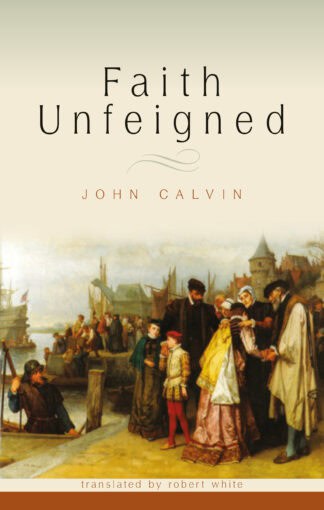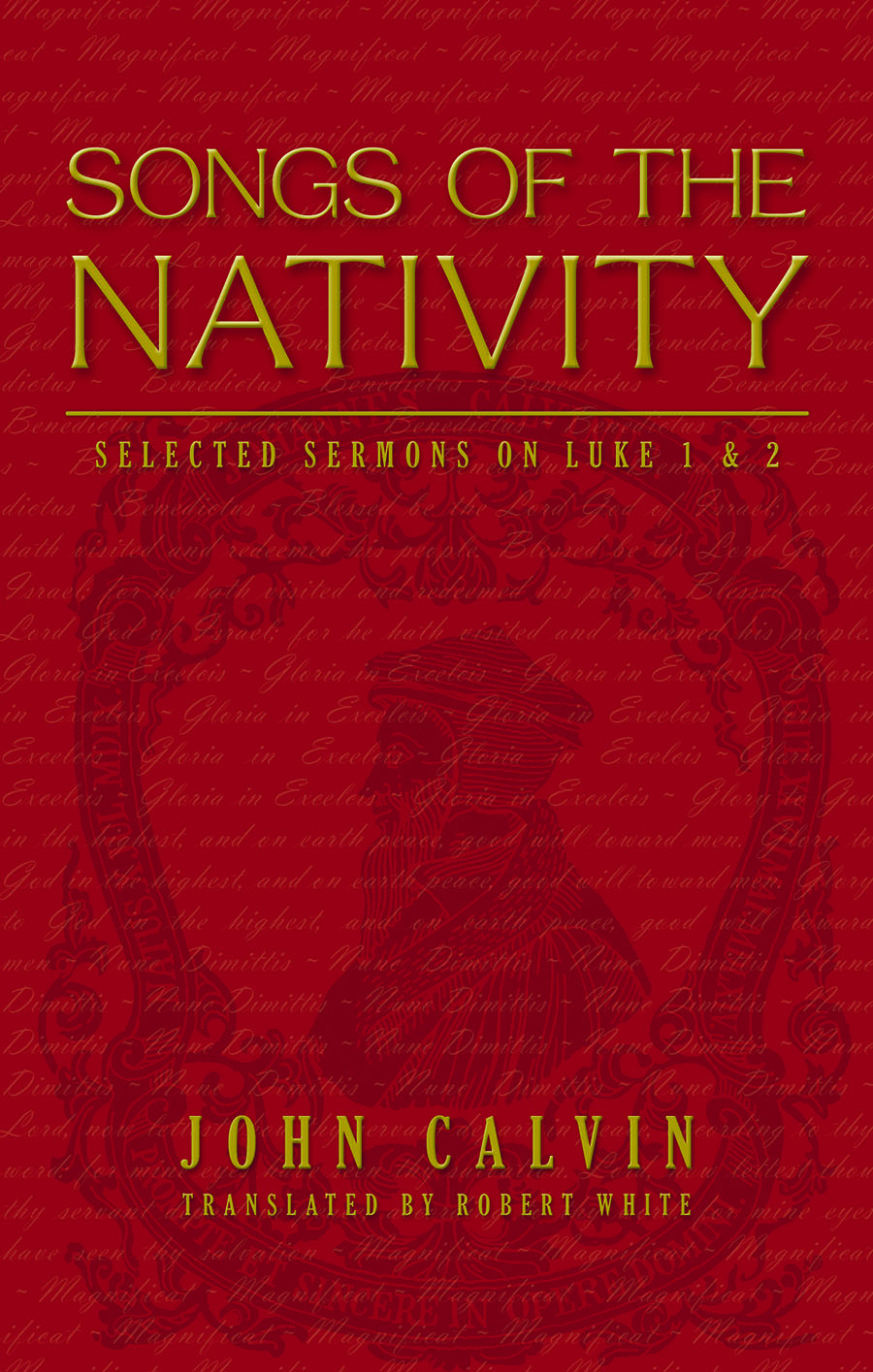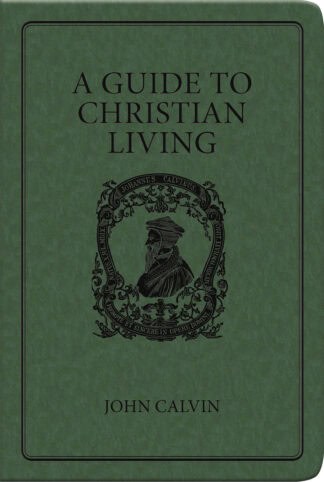Introducing John Calvin’s ‘Faith Unfeigned’
The translator’s ‘Introduction’ to Faith Unfeigned – Four Sermons concerning Matters Most Useful for the Present Time with A Brief Exposition of Psalm 871 by John Calvin.
The last half-century has seen a steady growth of interest in Calvin’s work as preacher. The Reformer’s sermons place us at the centre of his pastoral and theological practice: they bring him into direct relationship with a gathered congregation whom it is his task to lead and shepherd, and oblige him at the same time to present biblical doctrine in a forthright and familiar way.
By any measure Calvin’s homiletic output is impressive. His sermons account for one in four of the texts published in his lifetime; placed end to end, they occupy fifteen of the fifty-nine volumes of the standard nineteenth-century edition of his works.2 To this collection the editors of the Supplementa calviniana series have, since 1961, added over 450 sermons extant in manuscript form, with a sizeable number still to follow.3 Many of Calvin’s sermons – usually preached in consecutive fashion on a whole book of the Bible – were taken down in shorthand, transcribed and subsequently published by Genevan printers eager to satisfy a ready market.4 That the Reformer himself attached the highest importance to preaching is shown by his frequent description of ministers of the Word as God’s ‘mouthpieces’, ‘organs’ and – Paul’s term – ‘ambassadors’, without whom God’s people could never advance to maturity. In this connection it is useful to recall that the Genevan church and its missionary enterprise were shaped not only by a book – Calvin’s Institutes of the Christian Religion – but by sustained pulpit exposition, warning and encouragement.
It was Calvin’s habit to preach twice on Sundays. The year 1549 found him expounding Hebrews in the morning and the Psalms in the afternoon. The four sermons published here – three on the Psalms, one on Hebrews – are more or less contemporaneous, dating from the first half of 1549.5 The exposition of Psalm 87 appended to these texts was perhaps of more recent date. It too began life as a sermon, as Calvin later explained when he sent a copy of his text to the young Edward VI:
As I was one day expounding the Psalm to the congregation in a sermon, I thought the theme so well suited to you that I was at once moved to write an account of it, such as you will see when your Majesty is pleased to set aside one hour only of your time.6
When in the pulpit Calvin spoke without the benefit of written notes. Others sought to record the gist of what was said, but since the Reformer’s most gifted stenographer, Denis Raguenier, had not yet taken up his pen, the identity of earlier scribes is unknown. Unique among Calvin’s published sermons, those included here are not a verbatim account but have been reworked and revised by the preacher with a view to wider circulation.
Published in Geneva in late 1552 under the title, Quatre sermons traictans des matieres fort utiles pour nostre temps, avec briefve exposition du Pseaume LXXXVII, they were accompanied by the author’s preface dated 20 September 1552. A Latin translation of the work, intended for a Europe-wide audience and done at Calvin’s request by Claude Baduel, was issued in 1553; an Italian translation followed.7 That same year, in the first months of Mary Tudor’s reign, a partial English version of Baduel’s text, Certaine homilies of M. Ioan Calvine, was done by Robert Horne, former dean of Durham, but published with a false address: ‘Imprinted at Rome before the Castle of S. Angel at the signe of S. Peter.’ In 1561 a second English version of the complete work appeared, translated anonymously from the Latin ‘by divers and godly learned men’. Finally, in 1579, the Elizabethan Puritan, John Fielde, produced an unabridged text based on the original French, Foure Sermons of Maister Iohn Calvin, Entreating of Matters Very Profitable for our Time, with a Briefe Exposition of the LXXXVII. Psalme.
The author of the Four Sermons works his way successively through Psalm 16:4, Hebrews 13:13, Psalm 27:4 and 27:8. Although revised for publication, these texts still preserve the easy, unhurried sermon form. Psalm 87 is very different. Not only does Calvin move methodically and economically from the first to the last verse, he pays close attention to language and style, avoids polemical argument and adopts throughout a measured tone uncharacteristic of the other texts. The exposition is a barely disguised biblical commentary, so distinctive in form that it passes, with little alteration, into Calvin’s Commentary on the Psalms (1557), where it appears complete with the unusually long introductory outline.8
A unifying theme nevertheless emerges from this apparently disparate collection of texts: the need for an open and sincere profession of faith, made wherever possible within a church where the gospel is purely preached, the sacraments properly administered, and God duly honoured in prayer. Central to Calvin’s thought – central, indeed, to the thought of all the major Reformers – is the idea that Christian belief is more than inner acquiescence. It expresses itself audibly in words and visibly in deeds, such that the covert or private practice of one’s faith, the claim that God requires no more than ‘worship in spirit’, is seen to compromise faith itself and to comfort faith’s enemies. Nor can faith exist in isolation. In order to grow, it must be fed by the ministrations of Christ’s church, which consistently figures in these sermons not as a temporary refuge from a hostile world, but as God’s choice instrument of salvation, an outpost of heaven.
The note of urgency which pervades much of the Four Sermons reflects the troubled conditions of the time. Two factors in particular weigh heavily on the preacher’s mind. Calvin betrays little optimism as to the course of future events in Europe. However irreversible the Protestant Reformation may appear to the modern mind, many contemporaries were much less sure of its permanence. Nothing in the Reformer’s preaching suggests a serene belief in the inevitable progress of the gospel. Despite his conviction that the true church, to which the risen Christ had bound himself, would never perish, he could give no guarantee that the visible form with which he was familiar, and which he had helped to shape, would necessarily endure. Who can tell, he asks more than once, whether the present dispensation of relative calm is no more than a temporary truce, a preliminary to tribulations as terrible as any in the church’s past? The situation was one that called for more than usual courage.
Of pressing concern, too, was the dire distress suffered by French Protestants who, for over twenty years, had been relentlessly persecuted by both the civil and ecclesiastical powers. Many had been consigned to prison or to death. Calvin’s advice to believers, that they seek refuge in flight or, failing that, openly testify to their faith, was by no means popular. The alternatives of punishment on the one hand and of voluntary exile on the other, were very often perceived as twin evils to be avoided. Another way was sought, one which allowed believers to conform outwardly to Roman rites – and notably the central rite, the Mass – while inwardly adhering to the gospel. The strategy of concealment or disguise – what Calvin and others often refer to as ‘Nicodemism’ – afforded many evangelicals a seemingly reasonable chance of survival. To such as these, the Four Sermons were an unwelcome call to arms.
The problem was by no means new. Calvin had long sought to address the issue by appealing both to conscience and to Scripture. As early as 1537 he had published the Latin text of two letters sent to erstwhile friends who, after initial sympathy for the Reformed cause, had returned to the Roman fold. A reworked French version of one of the letters was published in 1543, entitled A Small Treatise Showing what a Believing Man Must Do when Living among the Papists. The following year there appeared the best known of all the works written in this vein, The Excuse to the Nicodemites.9
The best introduction to the Four Sermons is provided by Calvin himself, both in his preface (dated 20 September 1552) and in the descriptive title given to each of the sermons. Despite his earlier labours, the Reformer continued to be assailed by pleas for advice, but also by complaints that his approach was too academic, too detached from reality, too unfeeling, too harsh. Here again he takes up his earlier argument in favour of transparency both of belief and conduct. To conceal one’s faith, to pretend to be what one is not, is to dishonour God and to play the devil’s game. The only Christian course is either to hold one’s ground and to trust God whatever the consequences, or to seek refuge in a place where God can be freely served and worshipped.
What makes the Four Sermons memorable is the way Calvin engages with the varied needs of his audience: those whose theology of witness and worship is defective; those who, in his own mind, are guilty of bad faith; and those whose practice is skewed by feelings of fear, uncertainty or sheer inertia. Particularly poignant is the light thrown on the distress of genuine believers for whom issues of family, security and work are a painful impediment to action. Calvin’s answer in every case is firm, laying bare the twin issues of motive and opportunity.10
But while there is rebuke and admonition there is also encouragement and comfort. The Christian is not without the resources of Christ’s example, the Spirit’s advocacy and – a theme the preacher cannot repeat too often – the Father’s power and love which, for all our frailties, will bring to completion the work of grace already begun. The eschatological dimension of the coming kingdom and of union with Christ in heaven is never far from Calvin’s mind. He is never so immersed in the problems of the present as to forget that here is not our home.
Time has not diminished the importance of the issues which Calvin raises. The Four Sermons are, in a sense, as contemporary now as when first preached. The pressure to conform to non- or sub-Christian religions and cultures is something no Christian can escape. Persecution in many places is as painful a problem for pastors and people as it has ever been. In our weakness we are all adept, as Calvin frequently observes, at inventing excuses which fool no one but ourselves. To ponder the preacher’s words is to be reminded of the cost of discipleship, and of the need for a much larger vision of God’s saving grace and of the goal to which we are being led.
The present work is a new translation from the French. It is based on the Calvini opera edition of Baum, Cunitz and Reuss.11 Readings have, where necessary, been checked against the French of the Quatre sermons as published in the Recueil des opuscules of 1566.11 Calvin’s sermon titles have been shortened, and sub-headings are my own. Scripture references are given in parentheses in the body of the text. Where Scripture is directly cited, I have followed Calvin’s French text, not that of any of the standard English versions. When, as often happens, he cites from memory or paraphrases, I have translated accordingly. Some explanatory notes have been added.
Three appendices have also been added, each containing the text of an important letter relevant to the content of the present volume. The first two texts are my own work; the third, a letter written by Calvin to Nicolas Duchemin, future assistant to the bishop of Le Mans, was translated by Henry Beveridge for an edition ofCalvin’s Tracts (Edinburgh: Calvin Translation Society, 1844-1851; reprinted in 2009 by the Trust under the title, John Calvin: Tracts and Letters, 7 vols.).
Notes

Faith Unfeigned
Four Sermons Concerning Matters Most Useful for the Present Time with a Brief Exposition of Psalm 87
price From: £8.00Description
The translator’s ‘Introduction’ to Faith Unfeigned – Four Sermons concerning Matters Most Useful for the Present Time with A Brief Exposition of Psalm 871 by John Calvin. The last half-century has seen a steady growth of interest in Calvin’s work as preacher. The Reformer’s sermons place us at the centre of his pastoral and theological […]
- Calvini opera quae supersunt omnia, ed. G. Baum, E. Cunitz and E. Reuss (Brunswick and Berlin: C. A. Schwetschke & Son, 1863-1900). Hereafter cited as CO.
- Supplementa calviniana. Sermons inédits de Jean Calvi (Neukirchen: Neukirchener Verlag, 1961 ff., 9 vols. to date).
- On the history and transmission of Calvin’s sermons, see T. H. L. Parker, Calvin’s Preaching (Edinburgh: T. & T. Clark, 1992), pp. 57-75; Jean-François Gilmont, Jean Calvin et le livre imprimé (Geneva: Droz, 1997), pp. 106-16.
- Rodolphe Peter and Jean-François Gilmont, Bibliotheca calviniana, 3 vols. (Geneva: Droz, 1991-2000), I, p. 465.
- CO 14. 341-42.
- Peter and Gilmont, Bibliotheca calviniana, I, pp. 477-79. For the bibliographical details which follow, see, in the same work, I, pp. 469-71; II, pp. 814-17; III, pp. 288-90.
- CO 31. 798-805.
- On Calvin and Nicodemism, see Carlos M. N. Eire, War against the Idols: the Reformation of Worship from Erasmus to Calvin (Cambridge: Cambridge University Press, 1986), pp. 234-75; Robert White, ‘Calvin, the Nicodemites and the Cost of Discipleship’, Reformed Theological Review, 56 (1997), pp. 14-27.
- Questions of motive are never easy to determine. Among the Nicodemites were evangelicals who cherished the hope that Rome would reform itself and so heal the breach with Protestantism. The Council of Trent which, on papal initiative, laboured intermittently between 1545 and 1563 to reinforce the Church’s teaching, put an end to such hopes. Nicodemism nevertheless survived, often manifesting itself in later years as the party of compromise, dedicated to finding a middle way between the opposing confessions.
- CO 8. 371-452.
- Calvin, Recueil des opuscules (Geneva: J.-B. Pinereul, 1566), pp. 824-79.
Robert White formerly taught in the Department of French Studies at the University of Sydney, Australia, and has a specialist interest in the Reformation in French-speaking areas of Europe. He is the translator of the following Calvin titles published by the Trust1, 2, 3

Sermons on the Beatitudes
Five sermons from the 'Gospel Harmony', delivered in Geneva in 1560
price £9.00Description
The translator’s ‘Introduction’ to Faith Unfeigned – Four Sermons concerning Matters Most Useful for the Present Time with A Brief Exposition of Psalm 871 by John Calvin. The last half-century has seen a steady growth of interest in Calvin’s work as preacher. The Reformer’s sermons place us at the centre of his pastoral and theological […]

Songs of the Nativity
Selected Sermons on Luke 1 & 2
price £15.00Description
The translator’s ‘Introduction’ to Faith Unfeigned – Four Sermons concerning Matters Most Useful for the Present Time with A Brief Exposition of Psalm 871 by John Calvin. The last half-century has seen a steady growth of interest in Calvin’s work as preacher. The Reformer’s sermons place us at the centre of his pastoral and theological […]

price From: £5.00Description
The translator’s ‘Introduction’ to Faith Unfeigned – Four Sermons concerning Matters Most Useful for the Present Time with A Brief Exposition of Psalm 871 by John Calvin. The last half-century has seen a steady growth of interest in Calvin’s work as preacher. The Reformer’s sermons place us at the centre of his pastoral and theological […]
Latest Articles
On the Trail of the Covenanters 12 February 2026
The first two episodes of The Covenanter Story are now available. In an article that first appeared in the February edition of the Banner magazine, Joshua Kellard relates why the witness of the Scottish Covenanters is worthy of the earnest attention of evangelical Christians today. In late November of last year, on the hills above […]
A Martyr’s Last Letter to His Wife 11 February 2026
In the first video of The Covenanter Story, which releases tomorrow, we tell the story of James Guthrie, the first great martyr of the Covenant. On June 1, the day he was executed for high treason, he coursed the following farewell letter to his wife: “My heart,— Being within a few hours to lay down […]
